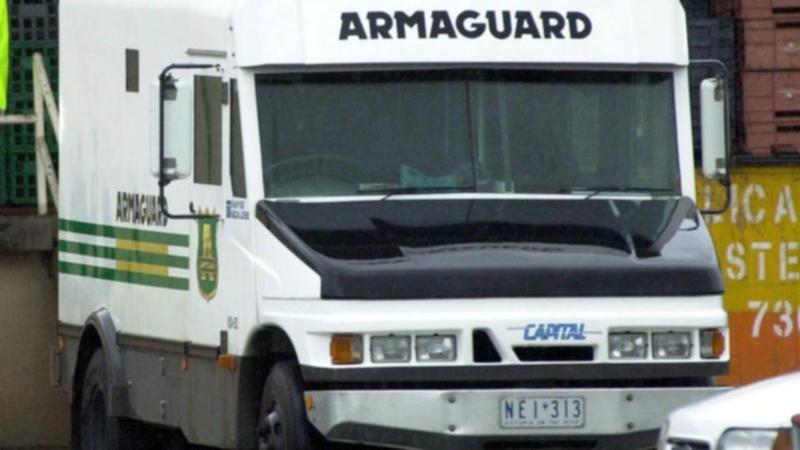Cash services will continue, transit company boss insists
Under-pressure Armaguard insists it’s business as usual for its cash-transit operations that provide cash to ATMs and transport money from stores, pushing back on reports it’s close to the end of operations.

Under-pressure Armaguard insists it’s business as usual for its cash-transit operations that provide cash to ATMs and transport money from stores, pushing back on reports it’s close to the end of operations.
The issue of cash services to businesses hit near-crisis levels before Easter amid concern for Armaguard’s long-term viability. A consortium of banks and retailers offered $26 million without repayment condition in a bid to shore up its services but that was rejected, with Armaguard instead taking $10m from its parent company, Linfox.
The talks had been led by the Australian Banking Authority, representing the big four banks, but also involved retailers Wesfarmers, Woolworths and Coles, as well as Australia Post and the Reserve Bank of Australia.
Sign up to The Nightly's newsletters.
Get the first look at the digital newspaper, curated daily stories and breaking headlines delivered to your inbox.
By continuing you agree to our Terms and Privacy Policy.Armaguard executive chair Peter Fox on Thursday pushed back on the ABA’s role, saying cash continuity was crucial but the association had only recently taken a role in “addressing these challenges in the industry that its members depend on”. Armaguard processes more than $6 billion each week from its customers.
“Armaguard has been communicating the systemic and structural challenges to government and industry stakeholders for several years,” he said.
“Industry members of the ABA have openly admitted to taking advantage of unsustainable competition for cash in transit services in previous years.”
Cash use is in freefall as consumers rapidly embrace digital payment systems, including cards and digital wallets. Recent Reserve Bank research suggests that more than half of all businesses that currently accept it are actively planning to stop doing so.
Cash as a proportion of retail payments fell from 69 per cent in 2007 to 27 per cent in 2019 and it’s widely expected to keep plunging, with estimates of 4 per cent use by 2030.
Mr Fox said his company believed structural, long-term reform was needed to return the cash-in-transit sector to “a sustainable footing”.
Talks between the ABA and Armaguard collapsed just before the Easter long weekend, with Armaguard to now deal directly with individual customers. Armaguard in June last year was allowed to merge with rival cash-in-transit business Prosegur, giving it a 90 per cent market share, with the industry concerns stemming from a lack of an obvious fallback if Armaguard were to fold.
The merger was conditional that services Prosegur delivered be continued for three years from 2023, with the ACCC conceding if it did not approve the merger, either Armaguard or Prosegur would pull out of the market.
Mr Fox said Armaguard was committed to continuing to provide its full range of services “as we have for over 80 years” to its customers to ensure access to cash was maintained.
“The public’s confidence in the availability of cash is of paramount national importance and cannot be delegated solely to an industry body that represents only some of the stakeholders within the industry, some of whom have a financial interest in alternative payment methods to cash,” he said.
“There is a place for the continuity of cash within the Australian community,” Mr Fox said.
“It is our endeavour to ensure a safe, secure and sustainable cash processing and transportation solution endures into the future.”
It’s understood the banks-retailers group is continuing to investigate possible supplementary plans to ensure cash was still available if Armaguard was not able to continue operations.
